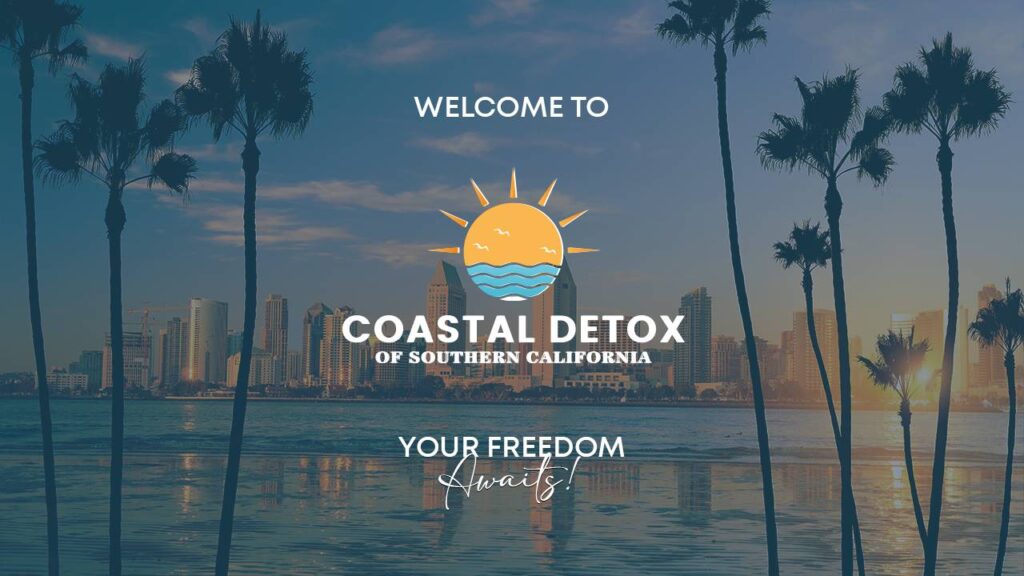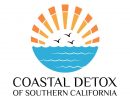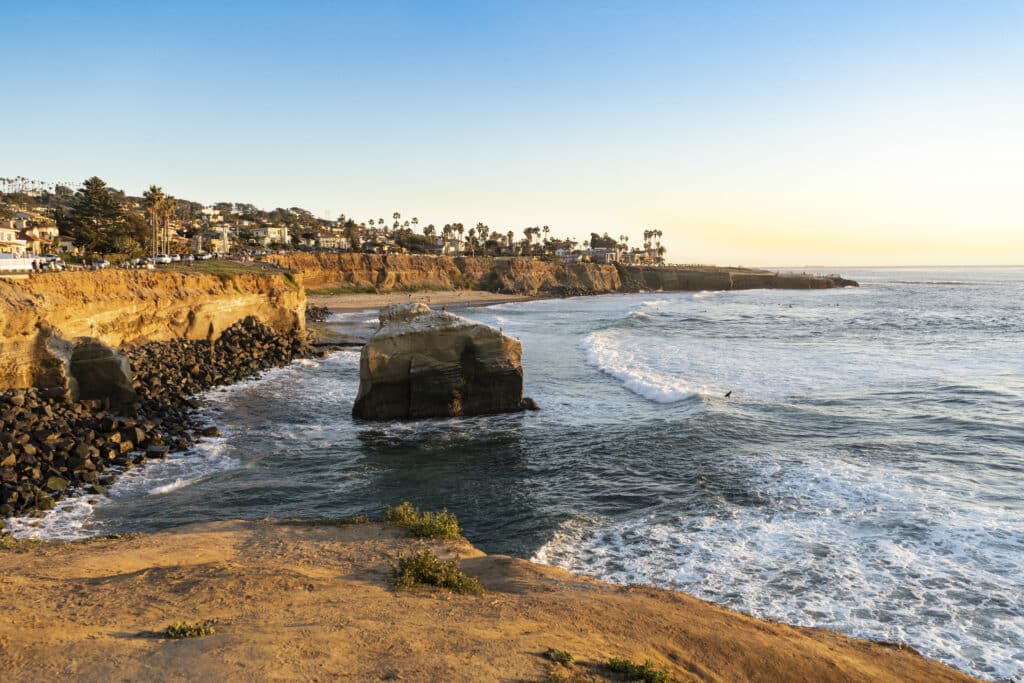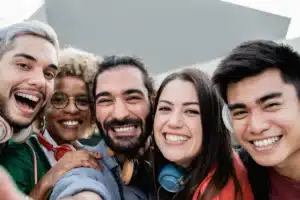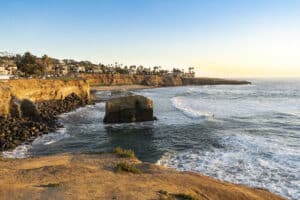Vacations are meant to be times of relaxation, adventure, and creating lasting memories. For individuals in recovery from alcohol addiction, however, planning a vacation can feel overwhelming. The change of routine, social pressures, and unfamiliar environments can present unique challenges to maintaining sobriety. With proper planning and the right strategies, it’s entirely possible to enjoy fulfilling, alcohol-free vacations that support your recovery journey rather than threaten it.
Whether you’re celebrating months or years of sobriety, understanding how to navigate vacation planning while prioritizing your recovery is essential for long-term success. This comprehensive guide provides practical tips and strategies to help you plan memorable vacations that align with your commitment to sobriety.
Understanding Vacation Triggers in Recovery
Common Challenges During Travel
Vacations naturally disrupt our daily routines, which can be particularly challenging for those in recovery who rely on structure and familiar coping mechanisms. The excitement of travel, combined with the social aspects of vacation activities, often centers around alcohol consumption in many cultures and destinations.
Airport bars, beachside cocktails, wine tours, and evening entertainment venues are just a few examples of how alcohol becomes deeply embedded in vacation experiences. Additionally, the stress of travel itself – including flight delays, lost luggage, or navigating new places – can trigger cravings for those accustomed to using alcohol as a stress reliever.
Social dynamics also shift during vacations. Traveling with friends or family who drink, meeting new people at resorts or tourist destinations, and feeling pressure to “fit in” with vacation culture can create unexpected challenges. The temporary nature of vacation can sometimes make individuals feel like their usual rules don’t apply, leading to dangerous “just this once” thinking.
Emotional Triggers to Anticipate
Vacations can bring up complex emotions that may trigger cravings. The freedom from work responsibilities might initially feel liberating, but it can also create anxiety for those who use busy schedules to avoid dealing with underlying issues. Conversely, having more time to think and reflect might bring up feelings or memories that were previously suppressed through alcohol use.
Family vacations, in particular, can be emotionally charged. Old family dynamics, unresolved conflicts, or the stress of extended time with relatives can challenge even those with strong sobriety foundations. Romantic getaways might trigger feelings about past drinking experiences with partners or concerns about maintaining intimacy without alcohol.
Pre-Trip Planning Strategies
Research Your Destination Thoroughly
Successful sober vacations begin long before you pack your bags. Start by researching your destination with sobriety in mind. Look into the local culture’s relationship with alcohol and identify areas or activities that might be particularly challenging. Some destinations are more alcohol-centric than others, and knowing what to expect helps you prepare mentally and practically.
Investigate sober-friendly activities and attractions at your destination. Many cities now offer alcohol-free entertainment options, from coffee shop tours to adventure activities that naturally don’t involve drinking. Research local AA or NA meetings if you attend them regularly, and note their schedules and locations. The knowledge that support is available if needed can provide peace of mind throughout your trip.
Consider the timing of your vacation carefully. Avoid planning trips during particularly stressful periods in your recovery or immediately after major life changes. Similarly, be mindful of choosing destinations during their peak party seasons unless you’re confident in your ability to navigate those environments.
Choose Accommodations Wisely
Your choice of accommodation can significantly impact your vacation experience. Consider staying in places that align with your recovery goals rather than those that might present unnecessary challenges. All-inclusive resorts, for example, often center heavily around unlimited alcoholic beverages, which might not be the best choice for someone in early recovery.
Look for accommodations that offer activities and amenities that support your interests and recovery. Hotels with fitness centers, spas, or proximity to nature can provide positive outlets for stress and energy. Vacation rentals might offer more control over your environment and the ability to prepare your own meals, reducing the social pressure of restaurant dining where alcohol service is prominent.
When booking accommodations, don’t hesitate to communicate your needs. Many hotels are accommodating to guests in recovery and can provide alcohol-free mini-bars or rooms without alcohol advertisements. Some establishments even specialize in wellness tourism and cater specifically to guests seeking alcohol-free experiences.
Create a Detailed Itinerary
Having a structured itinerary helps maintain the routine and purpose that support recovery, while also ensuring you make the most of your vacation time. Plan activities that excite you and align with your interests, focusing on experiences that don’t revolve around drinking culture.
Schedule activities during times when you might typically feel most vulnerable to cravings. Many people in recovery find that late afternoons and early evenings are particularly challenging times, so having planned activities during these hours can be especially helpful. Consider scheduling relaxing activities like spa treatments, nature walks, or cultural tours during these potential trigger times.
Include buffer time in your schedule for self-care activities. Plan for moments of solitude if you need them, or time to connect with your support network back home. Having flexibility in your itinerary allows you to adjust if certain activities or situations become overwhelming.
Building Your Support Network
Involving Travel Companions
If you’re traveling with others, honest communication about your recovery needs is essential. Before the trip, have open conversations with your travel companions about your sobriety and what support you might need. This doesn’t mean your recovery needs should dictate the entire vacation, but finding a balance that works for everyone is important.
Discuss how the group will handle situations involving alcohol. Will you participate in activities where others are drinking, or would you prefer alternative plans? Having these conversations beforehand prevents awkward moments during the vacation and helps everyone feel comfortable with the arrangements.
Consider traveling with people who are supportive of your recovery journey. This might mean choosing travel companions who don’t drink heavily themselves or who are understanding of recovery challenges. Sometimes, sober friends or family members make the best travel companions during early recovery.
Connecting with Local Recovery Communities
Many destinations have active recovery communities that welcome visitors. Research local AA, NA, or other support group meetings that you could attend during your vacation. Even if you don’t regularly attend meetings at home, having the option available while traveling can provide valuable support and connection.
Some people in recovery find that attending meetings while traveling offers unique insights and perspectives from different communities. It can also provide a sense of routine and familiarity in an otherwise unfamiliar environment. Professional addiction aftercare programs often encourage maintaining these connections even while traveling.
Consider reaching out to online recovery communities before your trip. Many recovery forums and social media groups have members worldwide who can offer local insights, recommendations, or even meetup opportunities for travelers in recovery.
Establishing Check-in Systems
Create a system for staying connected with your support network back home during your vacation. This might involve daily check-in calls with a sponsor, family member, or close friend in recovery. Having regular touchpoints helps maintain accountability and provides opportunities to process any challenges that arise during your trip.
Set up emergency contact protocols for situations where you might feel particularly vulnerable to relapse. Know who you can call at any time and have multiple contact options available. Many people find that simply knowing this support is readily available makes them feel more confident about traveling.
Consider scheduling calls or video chats with your therapist or counselor if you work with one regularly. Many practitioners offer remote sessions, and maintaining this connection during vacation can provide additional stability and support.
Practical Strategies for Staying Sober
Navigating Social Situations
Social situations involving alcohol are often unavoidable during vacations, but they don’t have to derail your recovery. Develop strategies for handling these situations before they arise. Practice polite but firm ways to decline alcoholic beverages, and have a few go-to responses ready for when people ask why you’re not drinking.
Consider arriving early to social events when energy levels are higher and alcohol consumption is typically lower. This allows you to enjoy the social aspects while feeling more in control of the environment. Similarly, having an exit strategy helps you leave situations gracefully if they become too challenging.
Focus on being the designated driver, the photographer, or taking on another role that naturally keeps you busy and provides a reason not to drink. Many people find that having a specific purpose in social situations makes them feel more comfortable and less focused on what others are drinking.
Managing Dining and Entertainment
Dining out is a central part of most vacations, but restaurant environments can present challenges for those in recovery. Research restaurants beforehand and choose establishments that offer interesting non-alcoholic beverages or are known for their food rather than their bar scene. Many restaurants now offer sophisticated mocktails that allow you to participate in the ritual of ordering special drinks without the alcohol.
When dining with others who are drinking, focus on the food and conversation rather than what’s in everyone’s glasses. Order your non-alcoholic beverage first and keep it full throughout the meal to avoid uncomfortable questions or offers for alcoholic drinks.
For entertainment, seek out activities that don’t center around drinking. Many destinations offer incredible cultural experiences, outdoor adventures, or entertainment options that are naturally alcohol-free. Comedy shows, live music venues, museums, and outdoor activities can provide the fun and excitement you’re seeking without the drinking culture.
Creating New Vacation Traditions
Use your sober vacation as an opportunity to create new, positive traditions that support your recovery journey. This might involve starting each day with meditation or exercise, trying local non-alcoholic specialties, or ending each day by writing in a travel journal about your experiences and gratitude.
Focus on truly experiencing your destination through all your senses. Without alcohol clouding your judgment or memory, you can fully appreciate new foods, beautiful scenery, interesting conversations, and unique cultural experiences. Many people in recovery find that their sober vacations are far more memorable and meaningful than their drinking vacations ever were.
Consider planning vacations around activities that align with your recovery values. Wellness retreats, adventure travel, volunteer tourism, or educational trips can provide structure and purpose that support sobriety while offering incredible experiences.
Dealing with Unexpected Challenges
When Cravings Hit
Despite the best planning, cravings can still occur during vacation. Having a plan for managing these moments is crucial for maintaining your sobriety. The HALT method (checking if you’re Hungry, Angry, Lonely, or Tired) can help identify underlying triggers for cravings and address them appropriately.
Keep a list of coping strategies readily available on your phone or in your travel documents. This might include breathing exercises, meditation apps, phone numbers for support contacts, or nearby locations where you can take a break and regroup. The National Institute on Alcohol Abuse and Alcoholism provides resources for understanding alcohol use patterns and triggers that can be helpful to review during challenging moments.
Remember that cravings are temporary and will pass. Having a plan to ride them out safely, whether that involves calling someone for support, engaging in a distracting activity, or removing yourself from triggering situations, helps maintain your commitment to sobriety.
Handling Peer Pressure
Peer pressure doesn’t end in high school, and vacation environments can sometimes intensify social pressure to drink. Prepare responses for different scenarios, from subtle encouragement to more direct pressure. Remember that you don’t owe anyone a detailed explanation of your recovery, and a simple “I don’t drink” or “I’m driving” is often sufficient.
Surround yourself with people who respect your choices. If traveling companions or new acquaintances become pushy about drinking, it may be necessary to limit your interaction with them or remove yourself from those situations entirely. Your recovery is more important than any social situation or relationship.
Consider that people’s reactions to your sobriety often say more about their own relationship with alcohol than about you. Many people who react negatively to others’ sobriety are dealing with their own concerns about drinking, and their pressure may come from a place of discomfort rather than genuine concern for your enjoyment.
Emergency Planning
Have a plan for serious recovery emergencies during your vacation. This includes knowing the location of the nearest hospital or treatment facility, having emergency contact information readily available, and understanding how your insurance works in your vacation destination.
Keep important medications with you in carry-on luggage if traveling by air, and bring extra supplies in case of delays or lost luggage. If you take medication for anxiety, depression, or other conditions that support your recovery, ensure you have adequate supplies for the entire trip.
Consider purchasing travel insurance that covers addiction-related emergencies or treatment if needed. While you hope never to need it, having this safety net can provide peace of mind and ensure you can get help quickly if circumstances require it.
Specific Destination Considerations
Beach and Resort Destinations
Beach and resort vacations are often synonymous with poolside cocktails and beachside bars, but they can absolutely be enjoyed sober. Focus on the natural beauty, water activities, and relaxation opportunities that these destinations offer. Many resorts now cater to wellness tourism and offer extensive spa services, fitness programs, and healthy dining options.
When choosing between resorts, research their activities and amenities beyond the bar scene. Look for properties that offer snorkeling, diving, cultural excursions, or other engaging activities that don’t revolve around drinking. All-inclusive resorts can be particularly challenging for those in recovery, so consider whether the convenience outweighs the potential triggers.
Take advantage of early morning activities when energy is fresh and alcohol consumption is naturally low. Sunrise beach walks, morning yoga classes, or early snorkeling trips can become highlights of your vacation while avoiding the peak drinking times later in the day.
City and Cultural Destinations
Urban destinations often offer the most diverse range of alcohol-free activities and entertainment options. Museums, historical sites, guided tours, shopping, and cultural events provide endless opportunities for enriching experiences that don’t involve drinking.
Research the local coffee culture, food scene, and entertainment options that cater to non-drinkers. Many cities now have thriving non-alcoholic beverage scenes, from specialty coffee shops to establishments serving craft mocktails and alcohol-free beer and wine.
Consider booking guided tours or classes that provide structure and social interaction in alcohol-free environments. Cooking classes, art workshops, historical tours, or fitness activities can provide the social engagement and new experiences you’re seeking while supporting your sobriety.
Adventure and Outdoor Destinations
Adventure travel naturally lends itself to sobriety, as most outdoor activities require clear thinking and physical coordination. Hiking, skiing, surfing, rock climbing, and other adventure sports provide natural highs and stress relief that can replace the artificial highs previously sought through alcohol.
These destinations often attract like-minded individuals who prioritize health and wellness, potentially providing social connections with others who share similar values. The physical challenges and natural beauty of adventure destinations can be deeply rewarding and memorable without any need for alcohol enhancement.
Focus on the achievement and personal growth aspects of adventure travel. Setting and reaching physical goals, overcoming fears, and pushing personal boundaries can be incredibly empowering experiences that reinforce your strength and capability in recovery.
Supporting Long-term Recovery Through Travel
Building Confidence and Self-Efficacy
Successfully completing a sober vacation builds tremendous confidence in your ability to maintain recovery in various situations. Each positive travel experience reinforces that you can enjoy life fully without alcohol and that your recovery is strong enough to withstand different environments and challenges.
Document your experiences through photos, journaling, or sharing with others in recovery. These records serve as powerful reminders of what’s possible in sobriety and can provide motivation during more challenging times. Many people find that their sober travel experiences become some of their most treasured memories.
Use successful sober vacations as stepping stones to tackle other challenging situations in recovery. The skills and confidence gained from navigating travel can translate to other social situations, work events, or life changes that might otherwise feel overwhelming.
Integrating Lessons Learned
After each sober vacation, take time to reflect on what worked well and what could be improved for future trips. This might include practical considerations like accommodation choices or packing decisions, as well as emotional and social strategies that proved effective or challenging.
Share your experiences with others in recovery who might be planning their own sober vacations. Many people in recovery feel isolated in their concerns about traveling sober, and hearing about successful experiences can provide both inspiration and practical guidance.
Consider how the coping strategies and planning skills used for vacation can be applied to other areas of recovery. The communication skills, boundary-setting, and self-advocacy required for sober travel are valuable tools for maintaining recovery in all aspects of life.
Expanding Your Recovery Community
Travel can introduce you to recovery communities and resources in different locations, expanding your support network and understanding of recovery. Many people form lasting friendships with others they meet at meetings or recovery events while traveling.
Consider planning future trips specifically around recovery-related events, conferences, or retreats. These specialized travel experiences combine the joy of exploration with the support and growth opportunities that benefit long-term recovery.
The Centers for Disease Control and Prevention notes that social support and community connection are crucial factors in maintaining long-term health behavior changes, including recovery from alcohol use disorder. Travel can be an excellent way to strengthen these important connections.
The Benefits of Sober Travel
Enhanced Experiences and Memory Formation
One of the most significant benefits of sober travel is the enhanced ability to fully experience and remember your vacation. Without alcohol clouding your judgment, dulling your senses, or causing blackouts, you can appreciate every moment of your journey more completely. Colors seem brighter, conversations are more meaningful, and experiences leave lasting impressions.
Many people in recovery report that their sober vacations are far more fulfilling than any drinking vacation they experienced. They return home feeling genuinely refreshed rather than needing a vacation from their vacation. The absence of hangovers means more energy for activities and exploration, maximizing the value of your time and money.
Sober travel also allows for better decision-making throughout your trip. You can navigate unfamiliar places more safely, make better choices about activities and spending, and avoid the regrettable decisions that often accompany intoxicated travel.
Improved Physical and Mental Health
Traveling without alcohol naturally supports better physical health during your vacation. You’ll likely sleep better, have more energy, stay better hydrated, and avoid the digestive issues that often accompany drinking while traveling. This leads to a more enjoyable experience and better overall health during and after your trip.
Mental health benefits include reduced anxiety, better mood stability, and a greater sense of accomplishment and self-control. Successfully managing a sober vacation reinforces positive self-image and confidence in your recovery journey. Dual diagnosis treatment approaches often emphasize how maintaining sobriety supports overall mental health and well-being.
The stress-reduction benefits of vacation are enhanced when not complicated by alcohol’s impact on sleep, mood, and physical health. You can return from your trip feeling genuinely restored rather than depleted.
Financial Benefits
Sober vacations are typically significantly less expensive than drinking vacations. Alcohol costs can quickly add up, especially in tourist destinations where drink prices are often inflated. By eliminating alcohol expenses, you can allocate more budget toward activities, better accommodations, or extending your vacation.
The money saved on alcohol can be redirected toward experiences that create lasting memories and support your recovery. This might include spa treatments, adventure activities, cultural experiences, or higher-quality meals that enhance your overall vacation experience.
Additionally, sober travelers avoid the potential costs associated with alcohol-related incidents during travel, such as medical expenses, legal issues, or property damage that sometimes result from impaired judgment.
Maintaining Perspective and Celebrating Success
Redefining Vacation Success
Success in sober vacation planning isn’t measured by how much fun you can have despite not drinking – it’s about recognizing that the most meaningful and memorable vacation experiences have nothing to do with alcohol. Reframe your definition of vacation success around personal growth, relationship building, new experiences, and the sense of accomplishment that comes from maintaining your recovery goals.
Celebrate the small victories throughout your trip. Successfully navigating a challenging social situation, choosing a healthy activity over a drinking-focused one, or simply waking up hangover-free each morning are all achievements worth acknowledging. These moments build cumulative confidence in your ability to enjoy life fully in recovery.
Remember that vacation is ultimately about rest, rejuvenation, and creating positive experiences. These goals are not only achievable without alcohol but are often enhanced by sobriety. Many people discover that their sober vacations become the benchmark for what travel can and should be.
Planning Future Adventures
Use successful sober vacations as motivation to plan future adventures. As your confidence grows, you might feel comfortable tackling more challenging destinations or longer trips. Each positive experience builds on the last, expanding your comfort zone and travel possibilities.
Consider setting travel goals that align with your recovery journey. This might include visiting a certain number of countries sober, completing a challenging adventure trip, or taking a solo vacation that demonstrates your independence and self-reliance in recovery.
Keep a travel journal or photo album of your sober adventures as a reminder of what’s possible in recovery. These records can provide inspiration during difficult times and serve as evidence of your growth and capability. Research from institutions like Brown University’s Center for Alcohol and Addiction Studies shows that positive experiences and achieving meaningful goals significantly support long-term recovery success.
Ready to Plan Your Sober Adventure?
Planning and enjoying sober vacations is not only possible but can be incredibly rewarding and memorable. If you’re in the early stages of recovery and feeling uncertain about traveling without alcohol, remember that professional support can help you build the confidence and skills needed for successful sober adventures.
At Coastal Detox of Southern California, we understand the challenges of maintaining sobriety in various life situations, including travel. Our comprehensive residential treatment programs help individuals develop the coping strategies and confidence needed for long-term recovery success. Through individual therapy and cognitive behavioral therapy, our clients learn to navigate challenging situations while maintaining their commitment to sobriety.
Don’t let concerns about traveling sober prevent you from experiencing the world. With proper planning, support, and the right recovery foundation, your next vacation can be your most meaningful adventure yet. Call us today at (858) 667-7394 to learn more about how our treatment programs can help you build the skills and confidence needed for a lifetime of sober adventures. Your journey to freedom begins with a single step – and that step can take you anywhere in the world.
